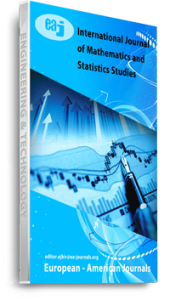Students’ academic performance of the target institution is discussed under certain vital statistical parameters. The study, aimed at determining strategic remedy to poor academic performance of students, identified possible negative impact factors within the institution. The study considered the following factors: Jamb Score (prior academic performance), Number of friends on Social Networking Sites (SNS), Concept of knowledge acquired in class and how it relates to real world experience (students’ motivation). Others are: How often they attend lectures, Rate of study in hours per week; How often they discuss ideas from lectures (students’ academic habit) and Time spent taking extra job alongside academic program (additional job). With these factors technically analysed, we employed Binary Logistic Regression Model to investigate the influence of these factors on students’ performance, whereas data analysis shows that these factors negatively affected students’ academically. From our findings, we recommended that intervention strategies that supports improvement among the Academically Imbalance Students (AIS), should be focused on: how to enhance immediate academic performance at the early stage of their academic career, guided usage of social networking sites. Furthermore, ensuring sufficient motivation as well as improved students’ academic habit must be encouraged. In addition, a proper choice of mode of study when additional job is unavoidable should be considered.
Citation: Jimoh Ahmed, Bashiru Omeiza Sule, Salawu Adamu Saka, Owonipa Oluremi Rasheedat, Ibrahim Ismaila Itopa (2021) Study on Factors that Influence Students Academic Performance in Kogi State University Anyigba: A Binary Logistic Regression Approach,
Keywords: : Academic Performance, Binary Logistic Regression, academic habit, academically balance students, academically imbalance students

